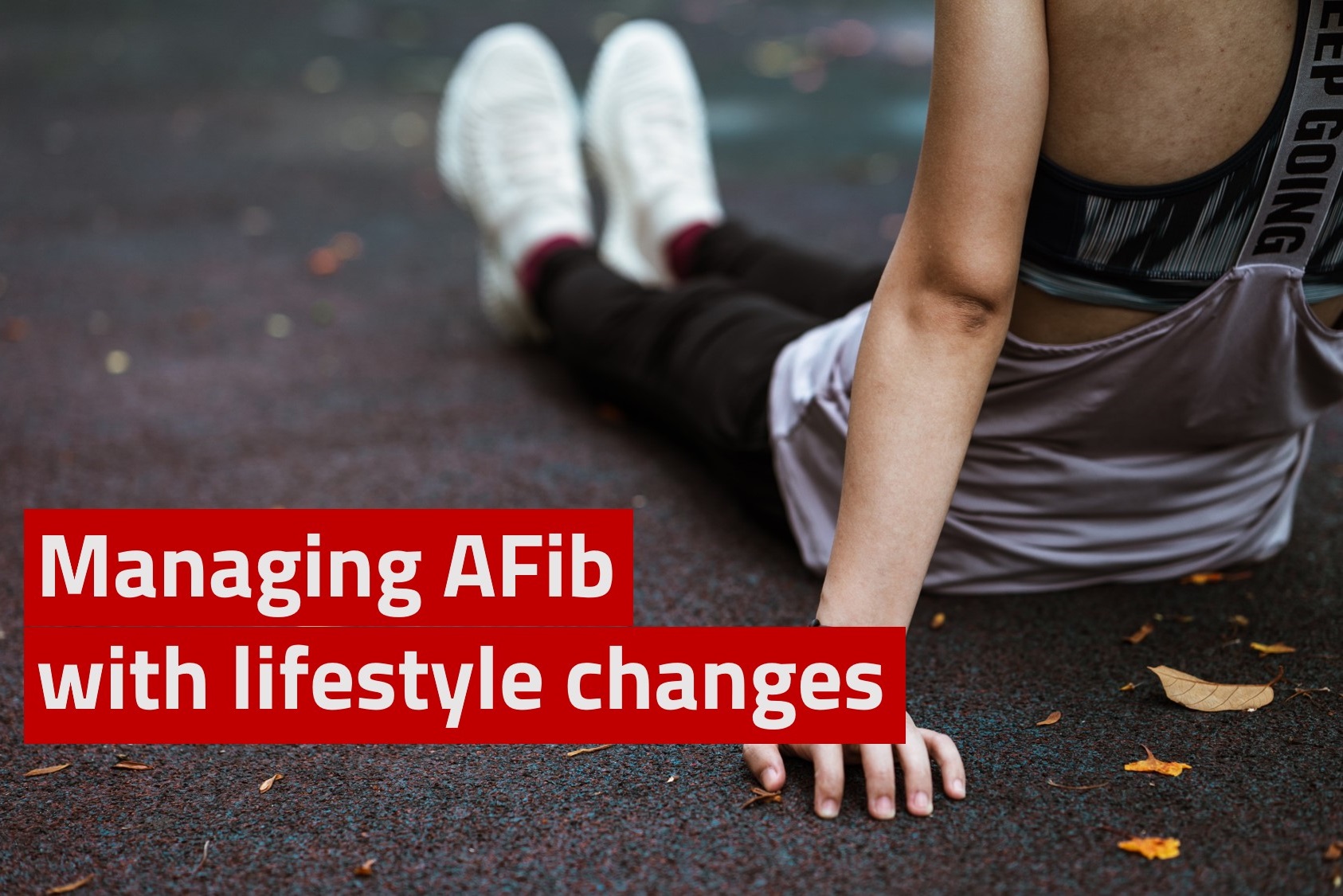Managing Atrial fibrillation (AFib) with Lifestyle Changes
An Atrial fibrillation (AFib) is a problem with the rate or rhythm of the heartbeat and is also the most common irregular heart rhythm condition. Atrial fibrillation is an irregular and often rapid heart rate that occurs when the two upper chambers of your heart experience chaotic electrical signals. The result is a fast and irregular heart rhythm.
The greatest risk from AFib is stroke or heart failure. Treatment for AFib often includes a combination of medications and lifestyle changes. People with AFib routinely require lifelong treatment with blood thinners, to prevent blood clots. In this blog we will learn how AFib can be well managed with certain lifestyle changes.
Obesity
Body weight is one of the strongest factors associated with AFib. Obesity is associated with changes to electrical signaling within the atria. Several studies have shown that as we gain weight, fat is deposited in the heart as well, and this can trigger arrhythmias, most commonly afib.
But the most important part is that for people who are obese, just 10% reduction in their weight helps improving symptoms related to AFib.
Exercise – Get moving
All the time your cardiologist suggests you do regular physical activities, because exercise reduces your risk of cardiovascular diseases. A sedentary lifestyle contributes to AFib and it may be an independent predictor of this condition.
Even a brisk walking is a great form of moderate exercise. You can start with 20 minutes a day and gradually can increase it to 150 minutes per week.
Sleep Disorders
Obstructive Sleep Apnea (OSA) – the most common form of sleep disordered breathing and is strongly associated with cardiovascular disease. Along with it, there is a high risk of AFib and recurrence of AFib symptoms in people with severe OSA.
Limit alcohol intake
Research and studies show that alcohol can trigger an AFib episode. Heavy drinkers and people who binge drink are more likely to experience an AFib episode.
If you have afib, try cutting back on alcohol, or even not drinking at all. Talk to your doctor if you are having trouble reducing your alcohol consumption.
Diabetes
The risk of afib is higher in patients with type 2 diabetes. While it is not much clear, it’s likely that elevated blood sugars directly damage the heart and promote electrical changes within the heart tissue.
But better blood sugar control improves both the severity and frequency of afib symptoms.
Develop a better diet
Cardiologists suggest that people with AFib should adopt a diet low in sodium and fat. Focus on eating a variety of fresh fruits and vegetables. Changing your diet can be challenging but eating less processed foods can be a good start.
Developing a better diet habit helps control weight, blood sugar and blood pressure.
AFib Treatment – design your own treatment with your cardiologist
Treatment for AFib is not a one-size-fits-all plan. You should create their own treatment plan consulting with your cardiologist.




